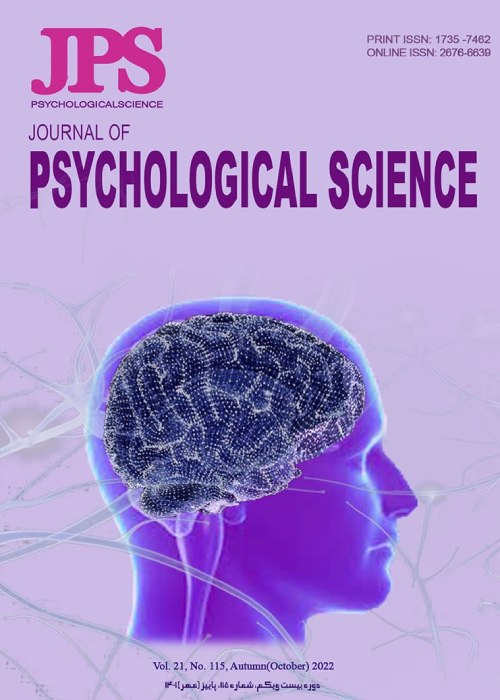The effectiveness of teaching thinking child program on problem solving and parental self-efficacy
Teaching problem-solving skills and parental self-efficacy enable the parents to deal effectively and logically with problematic behaviors of a child in different situations. However this is, can your child's law-abiding and thoughtful educational program make it possible for you?
The purpose of this study was to investigate the effectiveness of teaching Thinking Child Program on problem solving and parenting self-efficacy.
The research was quasi-experimental with pretest and posttest design without control group. The sample of this study was parents of children aged 4 to 7 years old of non profit schools in Tehran in 97-98 academic year, who were selected by available sampling method for participating in the “Thinking Child Program” workshops. The research tools were Hepner-Petersen Problem-Solving Questionnaire(1982) and Parental Self-Efficacy Questionnaire(1996). The intervention program was organized as a workshop in 9 sessions, one session of two hours per week.
The findings of the present study showed that after the implementation of the “Thinking Child Program”, the mean scores of problem-solving (in problem-solving components, problem-solving confidence, approach-avoidance style, and personal control) in mothers indicated an increase in their post-test scores (P=0/0001). In addition, the mean scores of parenting self-efficacy in pre-test and post-test of mothers indicate a significant increase in post-test scores (P= 0/01).
The results of this study indicate that teaching “Thinking Child Program” could change problem solving and self-efficacy of mothers at a significant level after the program intervention. Based on the increase in scores, it can be concluded that mothers' training had a positive effect on choosing appropriate behaviors and solutions
-
Investigating the Effectiveness of the Rehabilitation Package on the Cognitive Flexibility and Social Interaction of Students with Autism Spectrum Disorder Based on Executive Functions
Elham Shafiee, *, Aliakbar Arjmandnia, Saeid Hasanzadeh, Masoud Gholamali Lavasani
Journal of Applied Psycology Research, -
Validating of the Seven-Component Structure of Diagnostic-Prescriptive Learning Disability Evaluation Scale Among the Second- to Fifth-Grade Elementary Students
Sara Pazoki, Aliakbar Arjmandnia, Mohsen Shokoohi-Yekta*, Abbas Bazargan Harandi, Ali Moghaddam Zadeh
Middle Eastern Journal of Disability Studies, -
Development of a Family-Centered Emotion Regulation Program and Evaluation of Its Effectiveness on the Social, Emotional, and Academic Adjustment of Gifted Adolescents at Risk of Emotional and Behavioral Problems
Soroush Ranjbar, Gholamali Afrooz*, , Bagher Ghobari Bonab
Pajouhan Scientific Journal, -
Analysis of Indicators and Factors Associated with the Quality of Marriage Counseling and Family Strengthening Services: A Systematic Review
Samira Hoghoughi, Keyvan Salehi *, Mohsen Shokouhi Yekta, Ebrahim Khodaie
Strategic Studies On Youth and Sports,



